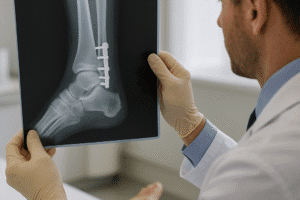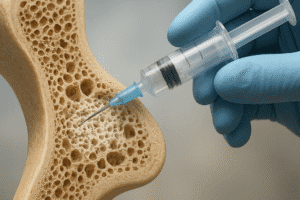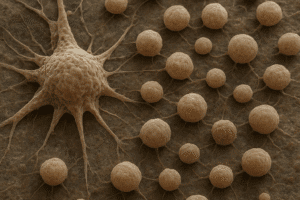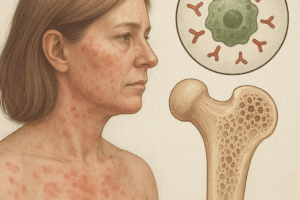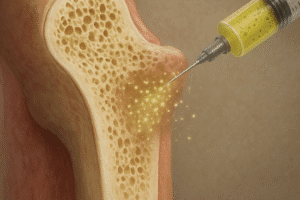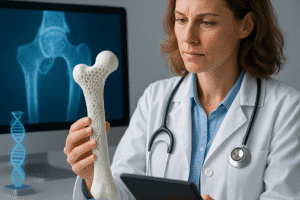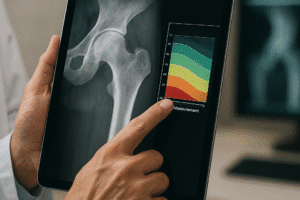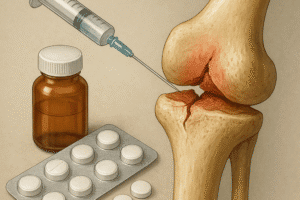Bone health during pregnancy is a crucial aspect that every expectant mother should prioritize. As the body undergoes significant changes to support the developing fetus, maintaining strong and healthy bones becomes essential not only for the mother but also for the baby’s growth and development. This article will explore the importance of bone health during pregnancy, the factors that influence it, and practical tips for ensuring optimal bone density and strength during this critical period.
The Importance of Bone Health During Pregnancy
Pregnancy is a time of remarkable transformation, and the skeletal system is no exception. The body requires additional nutrients and minerals to support the growing baby, which can impact the mother’s bone health. Understanding the significance of maintaining strong bones during this time is vital for several reasons:
- Calcium Demand: During pregnancy, the demand for calcium increases significantly. Calcium is essential for the development of the baby’s bones and teeth. If the mother does not consume enough calcium, her body will draw from her own bone reserves, potentially leading to weakened bones.
- Hormonal Changes: Pregnancy triggers hormonal changes that can affect bone metabolism. Increased levels of hormones such as estrogen can help protect bone density, but fluctuations can also lead to bone loss if not managed properly.
- Postpartum Recovery: After childbirth, the body needs to recover, and strong bones are crucial for the physical demands of motherhood. Women who maintain good bone health during pregnancy may find it easier to recover postpartum.
Factors Influencing Bone Health During Pregnancy
Several factors can influence bone health during pregnancy, including diet, lifestyle, and pre-existing health conditions. Understanding these factors can help women take proactive steps to ensure their bones remain strong throughout their pregnancy.
Dietary Considerations
A well-balanced diet rich in essential nutrients is fundamental for maintaining bone health during pregnancy. Key nutrients include:
- Calcium: Pregnant women should aim for at least 1,000 mg of calcium per day. Good sources include dairy products, leafy greens, almonds, and fortified foods.
- Vitamin D: This vitamin is crucial for calcium absorption. Sunlight is a natural source, but it can also be found in fatty fish, egg yolks, and fortified foods. Pregnant women may need to consider supplements if they have limited sun exposure.
- Magnesium: Magnesium plays a role in bone formation and can be found in nuts, seeds, whole grains, and green leafy vegetables.
- Protein: Adequate protein intake is essential for overall health and can be found in lean meats, beans, and legumes.
Lifestyle Factors
In addition to diet, lifestyle choices can significantly impact bone health during pregnancy. Consider the following:
- Physical Activity: Engaging in regular, moderate exercise can help strengthen bones and improve overall health. Weight-bearing exercises, such as walking or prenatal yoga, are particularly beneficial.
- Avoiding Smoking and Alcohol: Both smoking and excessive alcohol consumption can negatively affect bone health. Pregnant women should avoid these substances to promote a healthy pregnancy.
- Stress Management: High-stress levels can impact overall health, including bone health. Practicing relaxation techniques such as meditation, deep breathing, or prenatal classes can be beneficial.
Practical Tips for Maintaining Bone Health During Pregnancy
To ensure optimal bone health during pregnancy, women can adopt several practical strategies:
1. Prioritize Nutrient-Rich Foods
Focus on incorporating a variety of nutrient-dense foods into your diet. Aim for a colorful plate filled with fruits, vegetables, whole grains, lean proteins, and healthy fats. This approach will help ensure you receive the necessary vitamins and minerals for bone health.
2. Stay Hydrated
Proper hydration is essential for overall health, including bone health. Drinking enough water can help maintain optimal bodily functions and support nutrient absorption.
3. Consult with Healthcare Providers
Regular check-ups with healthcare providers are crucial during pregnancy. Discuss any concerns regarding bone health, and consider getting a bone density test if recommended. Your healthcare provider can also guide you on appropriate supplements if needed.
4. Engage in Safe Physical Activity
Consult with your healthcare provider about safe exercise options during pregnancy. Activities like swimming, walking, and prenatal yoga can help maintain bone strength while being gentle on the body.
5. Monitor Your Weight
Maintaining a healthy weight during pregnancy is important for overall health, including bone health. Rapid weight gain or loss can affect bone density, so aim for gradual, healthy weight gain as recommended by your healthcare provider.
Conclusion
Bone health during pregnancy is a vital aspect that should not be overlooked. By understanding the importance of maintaining strong bones, recognizing the factors that influence bone health, and implementing practical strategies, expectant mothers can support their own health and the health of their developing babies. Prioritizing a balanced diet, engaging in safe physical activity, and consulting with healthcare providers are essential steps in ensuring optimal bone health during this transformative time. With the right knowledge and proactive measures, women can navigate their pregnancies with confidence, knowing they are taking care of their bones and overall well-being.
